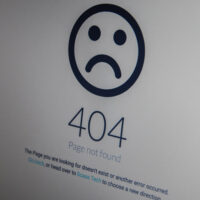For most people, taking a break means 15 minutes to grab a coffee or a weekend out of town. But more research is showing that to do our best work, we need to do less of it.
And not just in a cram-more-into-the-workday sense.
Instead, the key to successful, productive work days might just be something called deliberate rest. As Alex Soojung-Kim Pang, author of Rest: Why You Get More Done When You Work Less, explains:
“Work and rest are actually partners. They are like different parts of a wave. You can’t have the high without the low. The better you are at resting, the better you will be at working.”
So just what is deliberate rest? And how can we use it to make sure our downtime is as productive as our working time?
Why we have so much trouble taking time off
Some of the most successful people in history have worked the shortest hours.
Charles Darwin, Stephen King, and Maya Angelou have produced massive, influential bodies of work, without needing to work 40, 50, or 60+ hour weeks.
But for most of us, the idea that we can work less and still hit our long-term goals seems counterintuitive. There are lots of reasons why this is a common belief, but here are a few of the big ones:
We think more work should equal more output: Most industries champion long working hours in some way or another. And we see productivity not as doing more with less. But simply doing more.
We’re afraid of being “left behind”: In our competitive work environment, the thought of taking time off is scary. Not only could we miss out on some important conversation, but we worry that we’ll be left behind.
Work has become a larger part of our identity: Perhaps most importantly, we feel personally connected to the work we do. Taking time away opens up all sorts of questions that can be hard to face. And even harder to answer. As Soojun-Kim Pang puts it, “When your work is your self, when you cease work, you cease to exist.”
The problem with all these reasons is that they defer to short-term thinking.
The majority of productive people cite being able to break free from that short-term mentality as the breakthrough in their work.
Worse, short-term thinking is one of the biggest causes of workplace stress and burnout. We find it too easy to say “Sure, I’ll work those extra hours this week,” when there’s probably a better option.
Deliberate rest solves both these issues. Not only does it give your mind and body some much-needed downtime. But it allows you to use your time away from work to build the skills, connections, and mentality you need to eventually hit your long-term goals. MORE… You can read the entire article at https://blog.rescuetime.com/deliberate-rest/




















